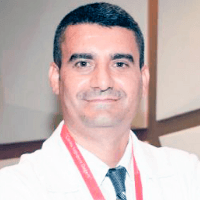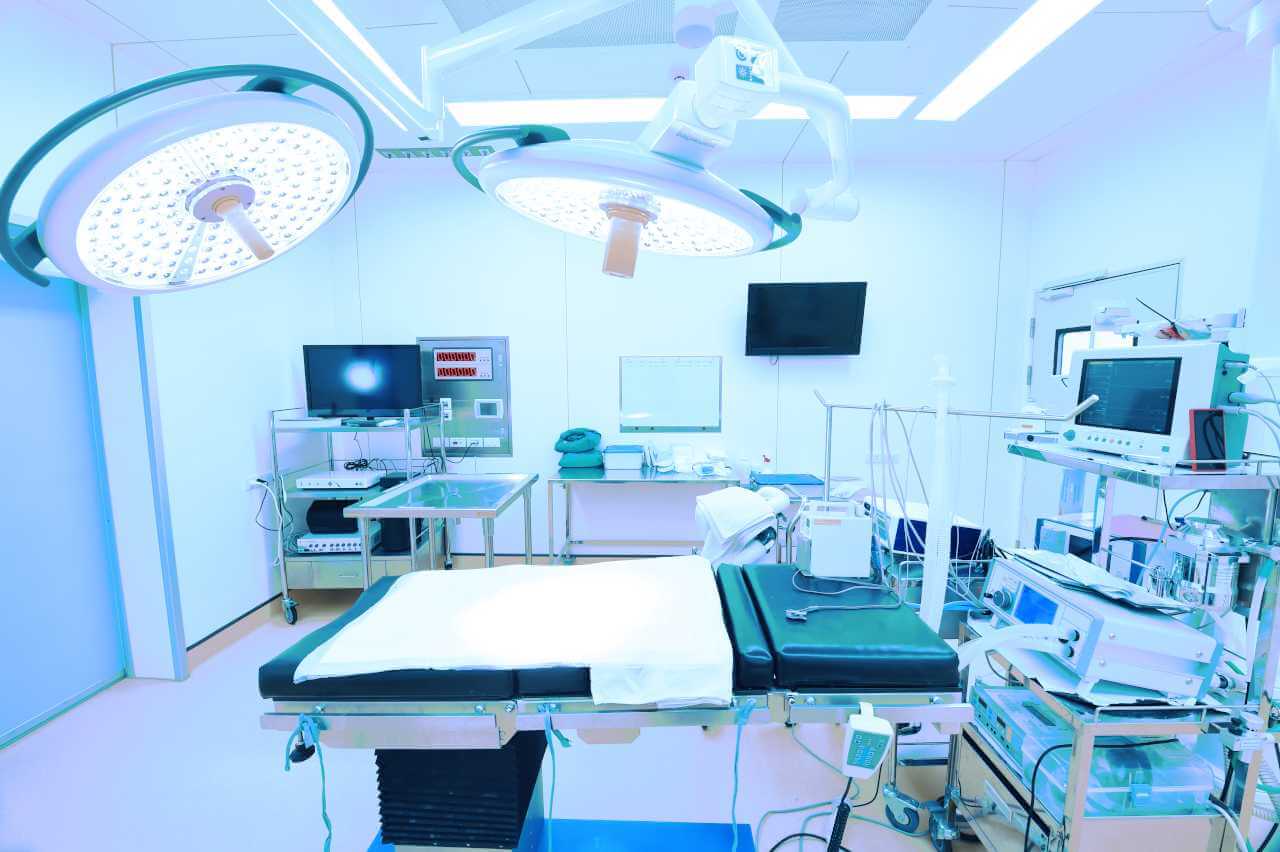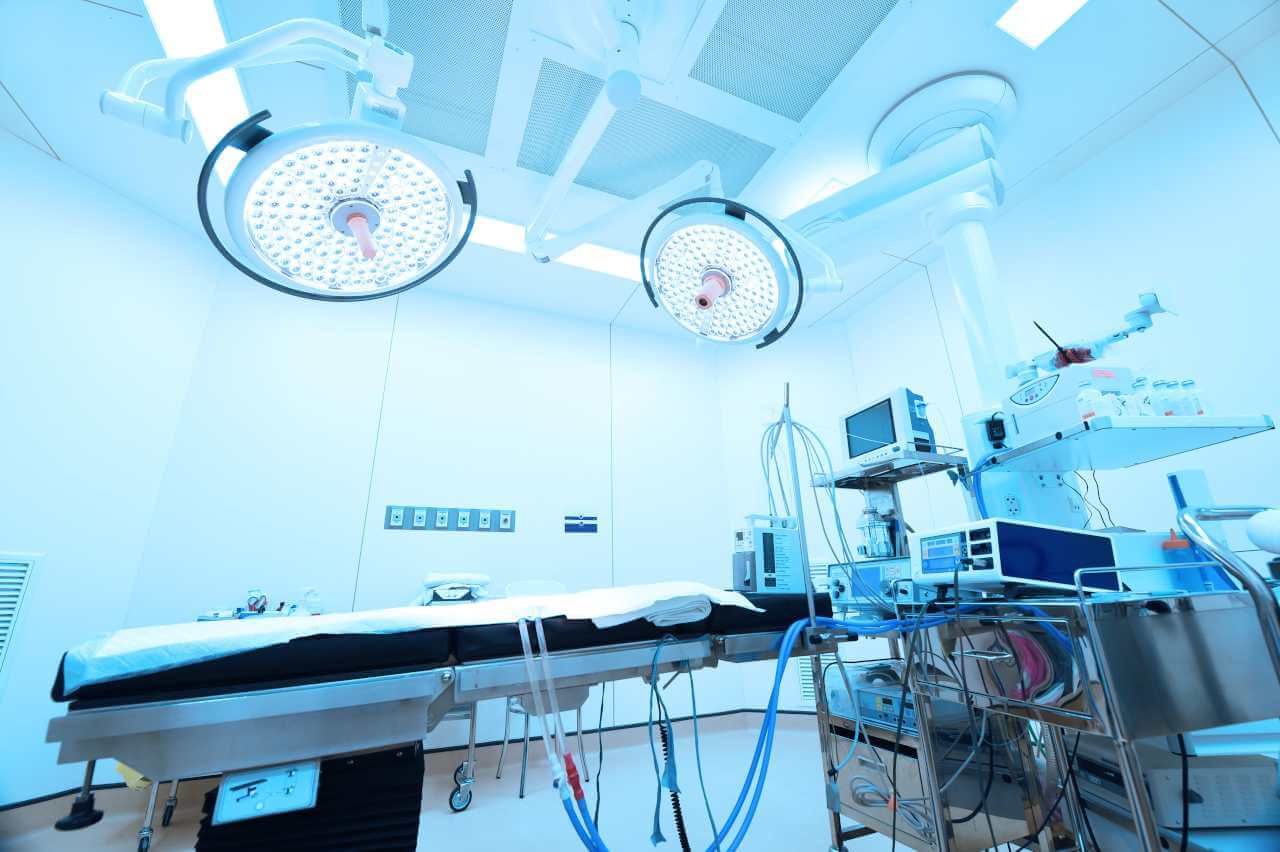
The program includes:
- Initial presentation in the clinic
- clinical history taking
- review of medical records
- physical examination
- laboratory tests:
- complete blood count
- general urine analysis
- biochemical analysis of blood
- TSH-basal, fT3, fT4
- tumor markers
- inflammation indicators (CRP, ESR)
- indicators of blood coagulation
- abdominal ultrasound scan
- CT scan/MRI or PET-CT of abdomen
- preoperative care
- cytoreductive surgery to remove visible tumors
inside the abdomen and HIPEC - histological and immunohistochemical
examination of removed tissues - symptomatic treatment
- cost of essential medicines
- nursing services
- stay in the hospital with a full board
- accommodation in a 2-bedroom ward
- elaboration of further recommendations
How program is carried out
During the first visit, the physician will conduct a clinical examination and go through the results of the available diagnostic tests. After that, you will undergo the necessary additional examination, such as the assessment of liver and kidney function, ultrasound scan and tomography of the abdominal organs. Based on the results of the examination, the physician will choose the surgical technique and the type of anesthesia. After that, preparation according to the preoperative standard will start.
Cytoreductive surgery begins with general anesthesia. The intervention is performed as open surgery, i.e. through the incision in the anterior abdominal wall, so that the surgeon can carefully examine the peritoneum and the surface of the abdominal organs. The surgeon removes affected by the malignant process ovaries, areas of the peritoneum and metastases in other internal organs. This stage of the operation can take several hours, since the overall effectiveness of the treatment depends on the completeness of the malignant tissues removal.
At the next stage of the operation, the surgeon inserts several catheters into the abdominal cavity. Through the catheters, a heated solution of a chemotherapy drug is pumped inside. The special system maintains the required temperature (42-43 degrees Celsius), pressure and circulation rate of the medicinal solution. The solution mechanically flushes out blood clots and remnants of malignant tissues, and a heated chemotherapy drug destroys micrometastases in internal organs and lymph nodes (micrometastases can’t be detected by the naked eye).
After 1-1.5 hours, the chemotherapy drug is removed from the abdominal cavity and the abdominal cavity is washed with saline. After that, the surgeon removes the catheters and sutures the incision of the anterior abdominal wall.
After the completion of the operation, you will be transferred to the ward of the intensive care unit, under the round-the-clock supervision of doctors and nurses. In 1-3 days after the operation, your drains will be removed and you will be transferred to a regular ward for further recovery. The whole treatment takes 10-12 days on average.
Finally, the attending physician will evaluate the results of control examinations, schedule the date of discharge from the hospital and give you detailed recommendations for further follow-up and treatment.
Required documents
- Medical records
- MRI/CT scan (not older than 3 months)
- Biopsy results (if available)
Service
You may also book:
 BookingHealth Price from:
BookingHealth Price from:
About the department
The Department of Gynecology, Gynecologic Oncology, Urogynecology and Obstetrics at the Memorial Bahçelievler Hospital Istanbul offers the full range of medical services in the field of its specialization at the highest level of modern medicine. The specialists in general gynecology diagnose and treat benign diseases of the female reproductive system (for example, uterine fibroids, endometriosis), ovarian menstrual cycle irregularities, clinical manifestations of menopause, hormonal disorders of gynecological genesis, etc. The department's specialists pay special attention to gynecologic oncology, which includes the treatment of malignant diseases of the female reproductive system. The department also provides high-quality obstetric services – comprehensive management of pregnancy, childbirth and postnatal care of the mother and child. The department is headed by Assoc. Prof. Dr. med. Veysel Sal.
The department's doctors use the most progressive methods of diagnostics and treatment of gynecological, urogynecological and gynecologic oncology diseases in their clinical practice. If a surgical treatment is required, the preference is always given to organ-preserving minimally invasive techniques, which allow the patient to maintain reproductive function and lead a healthy sex life.
The medical facility focuses on the treatment of patients with cancer of reproductive organs. The team of doctors specializing in gynecologic oncology provides effective treatment for cancers of the uterus, cervix, ovaries, fallopian tubes, vulva and vagina. The first step on the path to recovery is comprehensive diagnostics, which is carried out using high-precision laboratory tests and the latest imaging equipment. Accurate determination of the tumor location and size, as well as the stage of the cancer process, are the main factors, which guarantee a successful treatment result. These clinical indicators serve as the basis for elaboration of the individualized treatment regimen, which may include surgery for removal of the tumor, chemotherapy, radiation therapy, immunotherapy, targeted therapy, etc.
The department's service range is complemented by the diagnostics and treatment of urogynecological pathologies. The main ones are urinary incontinence in women and pelvic organ prolapse. The department's doctors admit patients with various types of urinary incontinence, including stress, imperative, mixed, psychogenic urinary incontinence, etc. Initially, the experts try to solve the problem conservatively, but if the effect of such treatment is not sufficient, then the operation is considered. The most modern and effective methods of surgical treatment of urinary incontinence include TVT sling operations (tension-free vaginal tape), TOT (transobturator tape), as well as the needle bladder neck suspension. Therapy for pelvic organ prolapse can also be conservative and surgical. In the first case, the department's doctors prescribe remedial gymnastics with an individual selection of a set of exercises. If it is impossible to solve the problem conservatively, the attending physician selects the optimal surgical treatment method. If surgical intervention is contraindicated, then the treatment with the help of special bandages and pessaries is carried out.
The department's specialists also provide high-quality obstetric services. The obstetricians of the medical center carry out comprehensive management of pregnancy, including high-risk pregnancies, multiple pregnancies. Only the latest ultrasound equipment is used in clinical practice to monitor the course of pregnancy during all trimesters. In addition, many laboratory tests are performed here for assessment of the health of the expectant mother and the development of the fetus. Childbirth takes place in modern delivery rooms equipped with everything necessary for a successful childbirth. If necessary, epidural or spinal anesthesia is performed. Acupuncture, aromatherapy, massage, relaxation baths and other methods are also used to relieve pain.
The department's range of medical services includes:
- Diagnostics and treatment of gynecologic diseases
- Uterine fibroids
- Ovarian cysts
- Endometriosis
- Polycystic ovary syndrome
- Polyps of the uterus and cervix
- Disorders of the sex hormones level
- Ovarian menstrual cycle irregularities
- Changes in a woman's body during menopause
- Chronic pain in the lower abdomen
- Diagnostics and treatment of gynecological oncological pathologies
- Uterine cancer
- Cervical cancer
- Ovarian cancer
- Fallopian tube cancer
- Vulvar cancer
- Diagnostics and treatment of urogynecological diseases
- All types of urinary incontinence
- Pelvic organ prolapse
- Obstetric services
- Integrated management of pregnancy
- Childbirth
- Postnatal care for mother and baby
- Other therapeutic options
Curriculum vitae
Professional Career
- Since 2018 Head of the Department of Gynecology, Gynecologic Oncology, Urogynecology and Obstetrics at the Memorial Bahçelievler Hospital Istanbul.
- 2016 - 2018 Specialist in Gynecologic Surgical Oncology, Şişli Etfal Training and Research Hospital.
- 2010 - 2010 Military service, Obstetrician-Gynecologist, ÇORLU 5, Turkey.
- 2010 - 2013 Obstetrician-Gynecologist (Obligatory Medical Practice), Kelkit State Hospital.
Higher Education and Postgraduate Training
- 2013 - 2016 Specialized training in Gynecologic Surgical Oncology, Cerrahpaşa Faculty of Medicine, Istanbul University.
- 2004 - 2009 Specialized training in Gynecologic Surgical Oncology, Cerrahpaşa Faculty of Medicine, Istanbul University.
- 1998 - 2004 Study of Human Medicine, Faculty of Medicine at the Istanbul University.
Scientific Publications:
- 36 scientific publications in national and international journals.
- 26 oral presentations at the international conferences.
- Author of the book "Genital HPV (Wart)".
- Author of a chapter in the book "General Treatment of Vulvar Cancers".
Memberships in Professional Societies
- Turkish Society of Gynecologic Oncology.
- Turkish Society of Obstetrics and Gynecology.
- Turkish Association of Minimally Invasive Gynecologic Surgical Oncology.
Photo of the doctor: (c) Memorial Bahçelievler Hospital
About hospital
The Memorial Bahçelievler Hospital Istanbul is an advanced multidisciplinary medical center that began its clinical practice in 2018. It is part of the world famous Memorial Healthcare Group. The hospital was designed in accordance with the very latest standards of modern architecture with the aim of providing top-class medical services in a pleasant and patient-oriented environment. It is worth noting that the interior of the medical facility is full of live plants, which have a positive impact on people and their mood. The hospital is awarded the prestigious LEED Platinum Certificate, confirming the highest level of environmental friendliness and safety of the buildings of the medical complex.
The hospital has 320 beds for patient hospitalization. The medical and technical base of the hospital is one of the best and most advanced in Turkey – modern diagnostic rooms with MRI, CT, PET-CT scanners, gamma cameras, X-ray equipment, mammography systems and other equipment, 15 operating rooms, including for robot-assisted, endoscopic and hybrid surgical interventions, intensive care units, etc. The hospital also has a high-performance state-of-the-art Elekta Versa HD SIGNATURE system for radiation therapy.
The powerful technical resources of the hospital are complemented by a highly professional medical staff, who have achieved significant success not only at the national level, but also in the international medical arena. The doctors and nursing staff of the hospital are distinguished by excellent medical qualifications, as well as humane and compassionate attitude towards each patient. They strongly support their patients on their way to recovery.
The medical center admits not only Turkish citizens for treatment, but also patients from 92 countries of the world, and therefore it boasts a wealth of experience in serving international patients with clinical cases of varying complexity.
Photo: (c) Memorial Bahçelievler Hospital, (c) depositphotos
Accommodation in hospital
Patients rooms
The patients of the Memorial Bahçelievler Hospital Istanbul live in cozy rooms with an excellent layout and modern design. The standard patient rooms are equipped with a comfortable automatically adjustable bed, a bedside table, a table and a chair, a wardrobe, a sofa for receiving visitors. The patient room also includes a TV, a telephone and Wi-Fi. Each room has an ensuite bathroom with shower and toilet. The hospital also provides patients with enhanced-comfort rooms corresponding to a five-star hotel.
Meals and Menus
The patient and the accompanying person are offered tasty and balanced three meals a day. If for some reason you do not eat all foods, you will be offered an individual menu. Please inform the medical staff about your food preferences prior to treatment.
Further details
Standard rooms include:
Accompanying person
During the inpatient program, the accompanying person can live with the patient in a patient room or a hotel of his choice. Our managers will help you choose the most suitable option.
Hotel
During an outpatient program, the patient can stay at the hotel of his choice. Our managers will help you choose the most suitable option.




